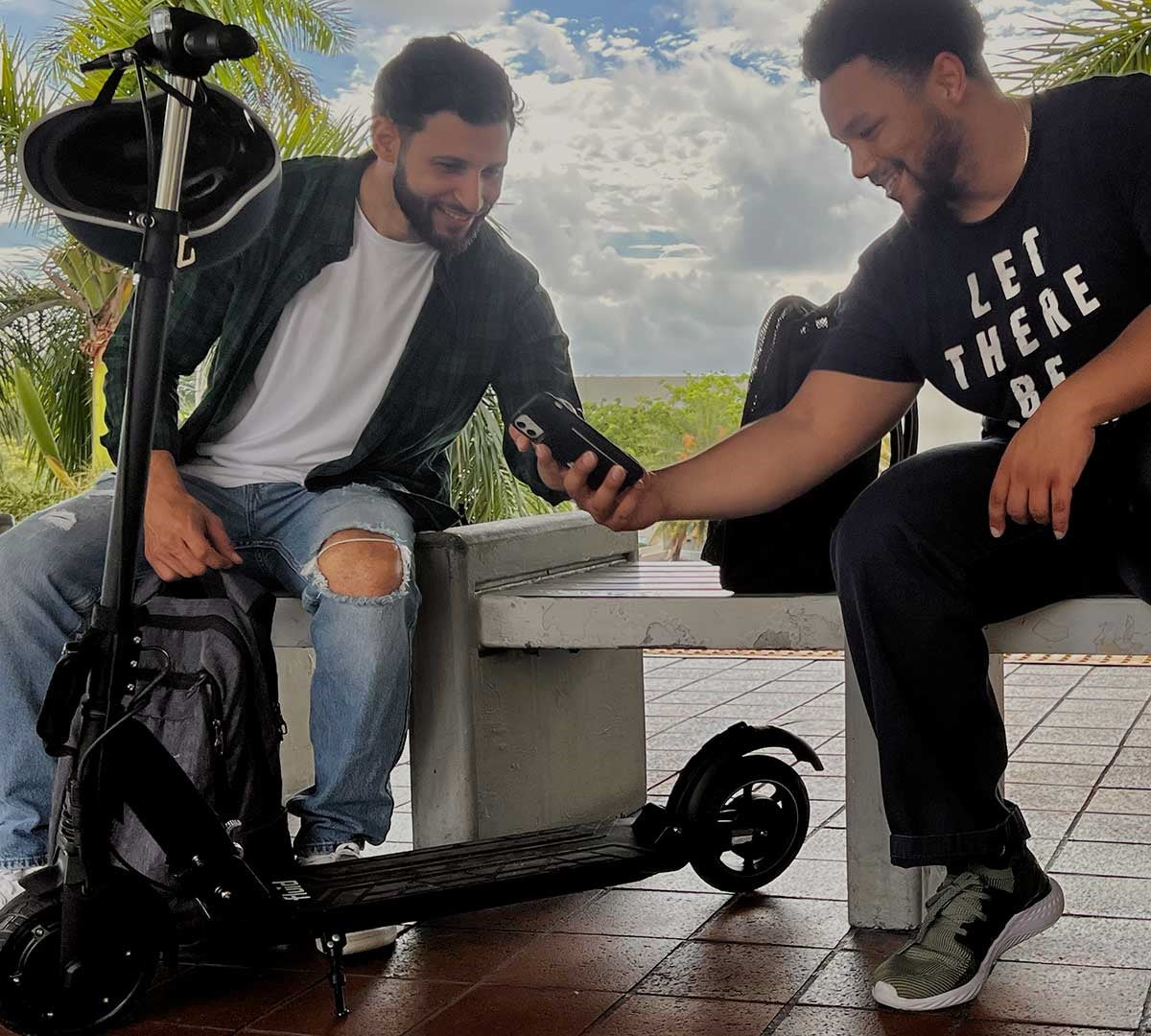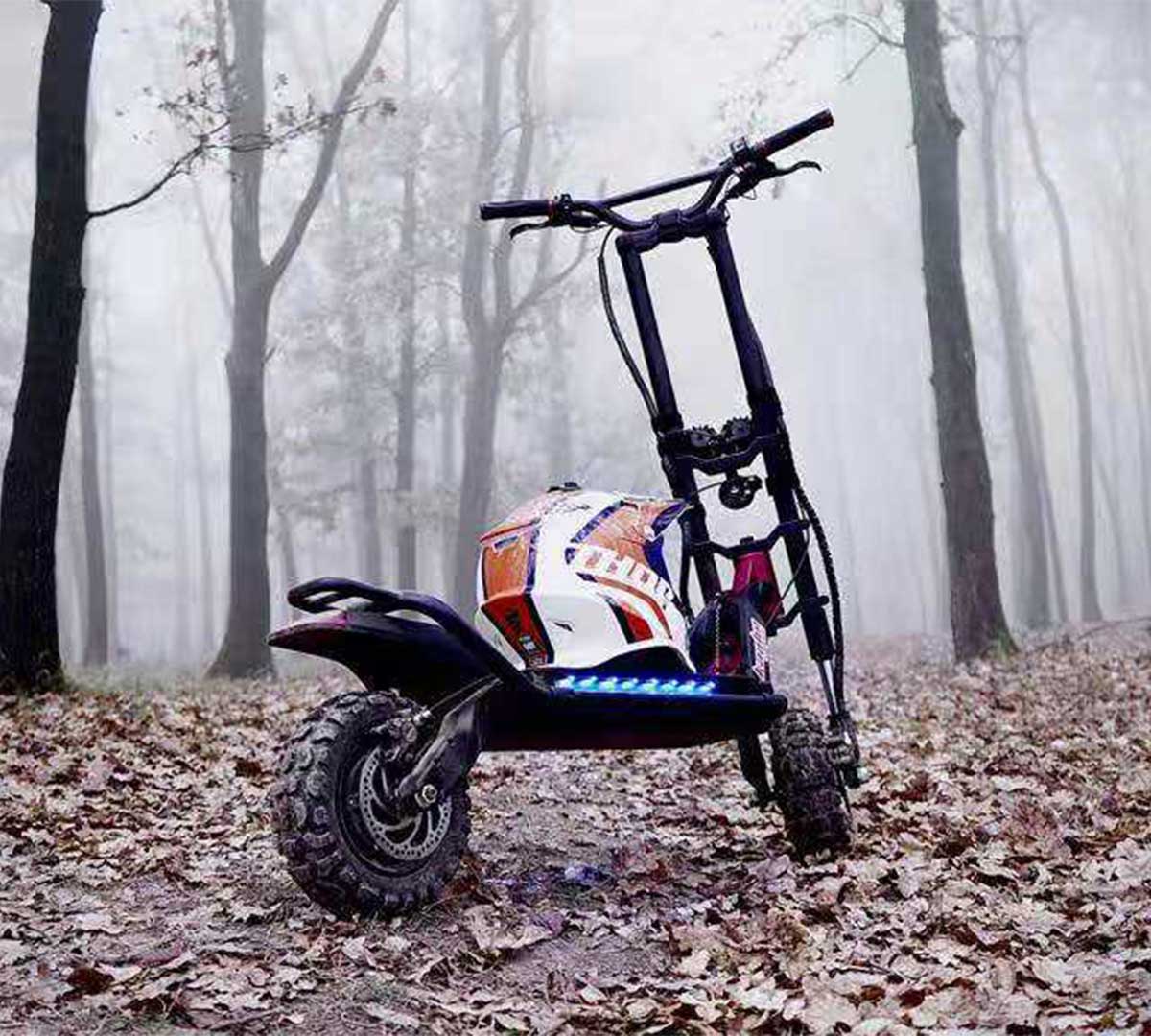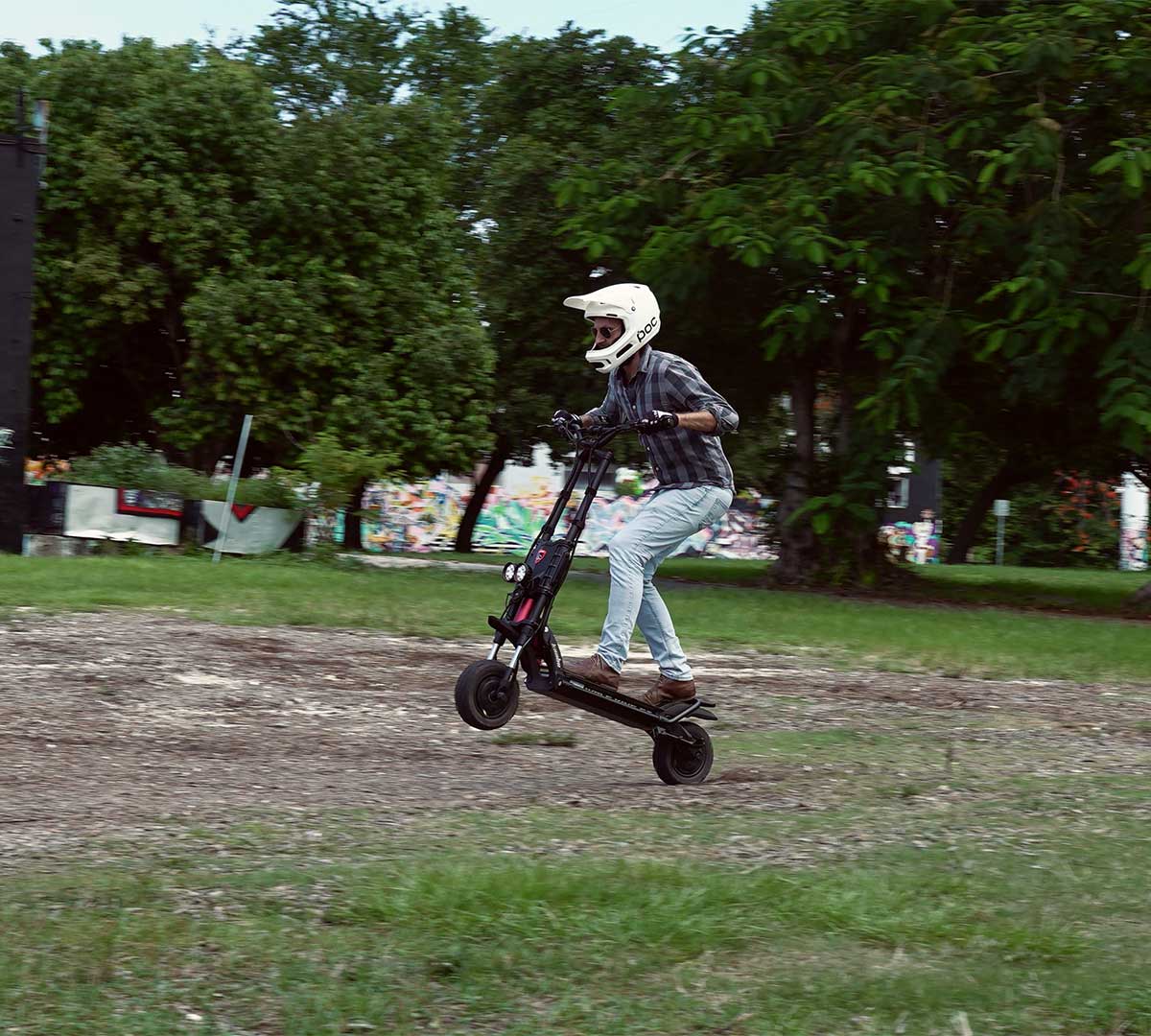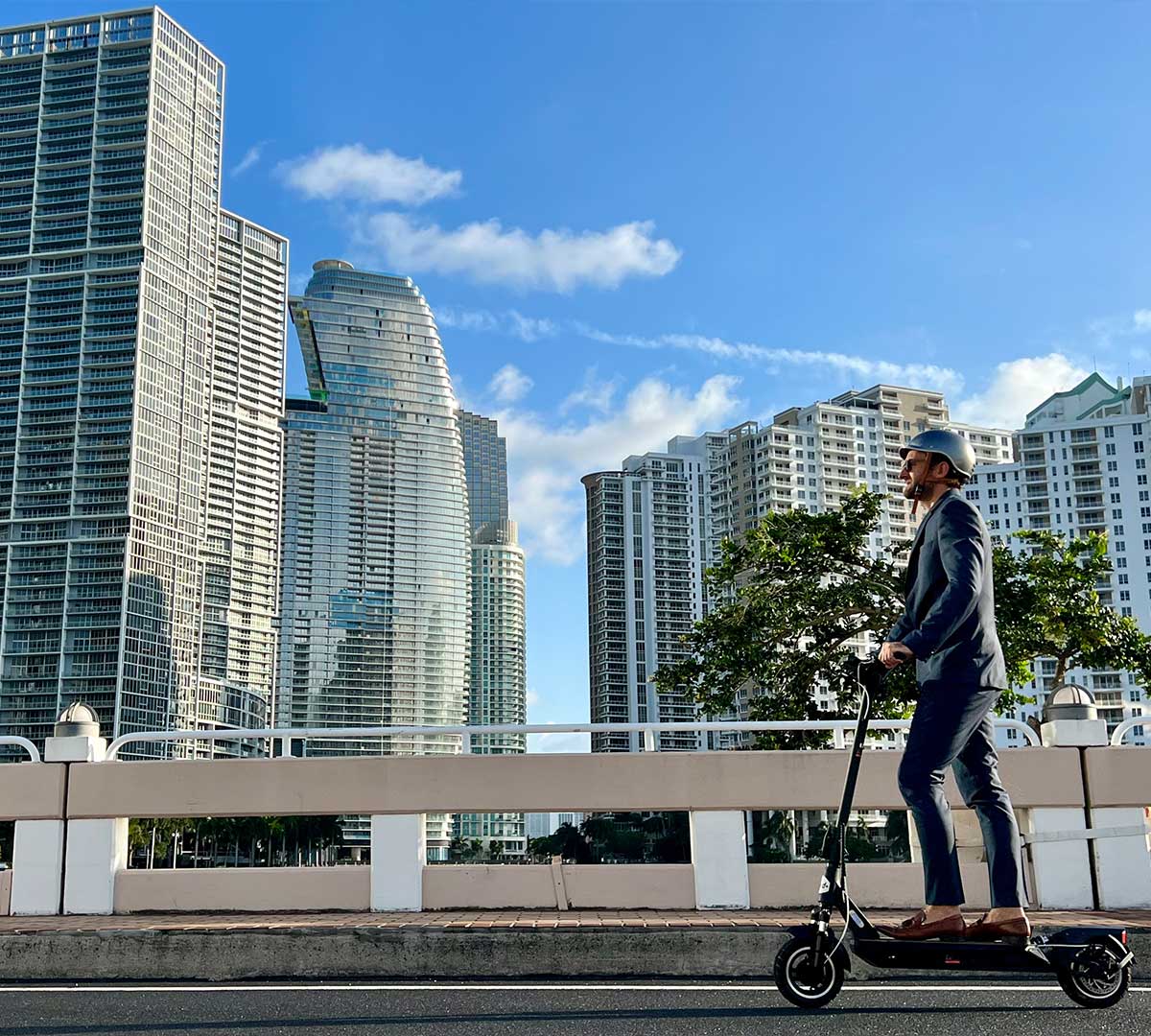The Truth About Best Electric Scooters Battery Life
- Read Time: 7 mins 43 secs
Uncover the myths and realities about electric scooter battery life in our comprehensive guide. From understanding specifications to maximizing longevity, we dissect what truly matters for a long-lasting ride.

Electric Scooter Batteries

The heart of an electric scooter is its battery. The better the "heart" the better the battery's lifespan. And they are not all the same although similar. Some misconceptions and myths surrounding battery life are still alive and kicking.
In reality, batteries vary based on capacity, chemistry, and quality. The lithium ion battery pack is the one many electric scooters rely on today for long battery life.
Some other beliefs that are no longer correct are:
- You should let the battery fully drain before charging". Not true anymore with the latest battery technology. This was connected to the memory effect associated with older nickel cadmium batteries.
- "Electric scooter batteries charge faster when they're almost empty". Not true. It might seem that the initial charge is quicker when the battery is empty, however, the total time to get a full battery charge remains about the same regardless of the starting state.
- "Electric scooters with bigger batteries always have a longer range". Sure, a bigger battery usually means a bigger battery capacity but the range of an electric scooter also depends on motor efficiency, battery management system, riding style and weight as well as the terrain.
Battery Capacity
Understanding battery performance and capacity means understanding what some letter combination means.
F.e. mAh is short for milliampere hour. It is one thousandth of an ampere hour (Ah). Both measures are commonly used to describe the energy charge the battery can hold and how long it will run before the battery charge is empty.
The higher the mAh rating, the higher the charge capacity but it also means that it takes longer to fully charge.
Voltage
A higher voltage battery delivers a greater charge to the motor and thus generates more power and it's top speed and performance. The higher the voltage number, the more powerful.
Watt Hours (Wh)
The formula (mAh * V / 1,000) is used to calculate the energy capacity of a battery in watthours (Wh). Here's how it works:
- mAh (milliampere hours): This measures the electric charge or the amount of energy a battery can deliver over time. It's a unit that describes how much current (in milliamperes) the battery can deliver for one hour.
- V (Volts): This is the measure of the electric potential or voltage of the battery. In simple terms, it's the force by which electrons are driven in a circuit.
When you multiply mAh by V, you get the energy capacity of the battery in milliwatt hours (mWh). However, watt hour (Wh) is a more commonly used unit for this purpose in larger devices and systems, so we divide by 1,000 to convert mWh to Wh.
This is important for two reasons
- Comparing Batteries: Not all batteries have the same voltage and charge capacity. By converting to Wh, you get a consistent measure of the total energy stored in a battery, irrespective of its voltage. This makes it easier to compare the real world use of batteries with different voltages.
- Estimating Real World Use: Knowing the Wh of a device's battery and the power consumption rate of that device (in watts) allows you to estimate how long the device can operate on a single charge. For instance, a 20 Wh battery powering a device that consumes 5 watts will theoretically last for 4 hours.
Factors Influencing Battery Life
1. Rider's Weight:
More weight equals more energy consumed. Therefore, the heavier the rider, the shorter the battery life and range expected.
2. Terrain:
If you ride a bicycle uphill, you will feel it takes more energy than on the flat. More watts are needed in order to get up. Riding a bike is also more difficult on rough and bumpy surfaces.
If you go on a MTB trip in the forest you will feel the burn quicker and harder on your legs than on a smooth road trip. The same is true for the e scooter battery. Inclines as well as rough surfaces impact range and battery life.
3. Scooter's Speed:
Going faster and driving a petrol vehicle hard will burn more fuel. Electric scooter batteries follow the same formula. Going hard on acceleration and at top speed all the time will make the electric scooter battery life shorter.
4. Temperature:
Dive into the effects of extremely cold or hot climates on battery performance and longevity.
Cold as well as hot temperatures will have an impact on the battery capacity. The optimal temperature for an electric scooter is around 68°F (20°C) to prolong battery life.
Lithium ion batteries operate through chemical reactions. Cold weather can drastically slow down these reactions.
How to Maximize Battery Life

1. Regular Maintenance:
Wipe Your electric scooter off after every ride. It might not be very dirty to the eye but e scooters are not like cars. They are slightly more delicate.
Dirt and other obstacles can work their way into the components. It can be as easy as wiping it off with a dry towel. Especially underneath. This will also allow you to inspect for any wear and tear or unseen damages.
Especially important if your scooter has a detachable battery as the connections and sockets might be compromised if not kept clean.
If you are planning on not using it for some time, make sure to charge it to at least 60% once per month. The battery cells need activating.
2. Proper Storage:
Storing your electric vehicle and its battery properly is of utmost importance to help prolong battery life. Store it inside at no less than 50°F (10°C) and not more than 86°F (30°C) of temperature. Check the specs of your specific battery for an ideal temperature. Avoid direct sunlight as well.
If you leave your scooter outside or in a colder garage and it has been very cold, make sure to let it "warm up" for several hours at room temperature before charging.
3. Avoiding Complete Discharge:
If you let your battery drain completely or go very low, and let it stay that way for some time, you might cause serious damage to your battery cells. For a longer battery lifespan make sure to always charge your battery after every ride.
Electric scooter battery life
Electric scooter batteries

To sum it all up. An electric scooter is not a tank and is not bulletproof. Not even performance scooters. And neither are batteries. Battery life depends on you, the owner for proper maintenance and caring.
Not only how and where you ride, but also how you store and charge it. Treat them gently and make sure the ambient temperature is correct.
Not all electric scooter batteries are exactly the same and as explained, other components such as the battery management system are very important for battery usage and performance, you should do some research in order to know what you are looking for and get what you expect before deciding on which scooter you get.



















